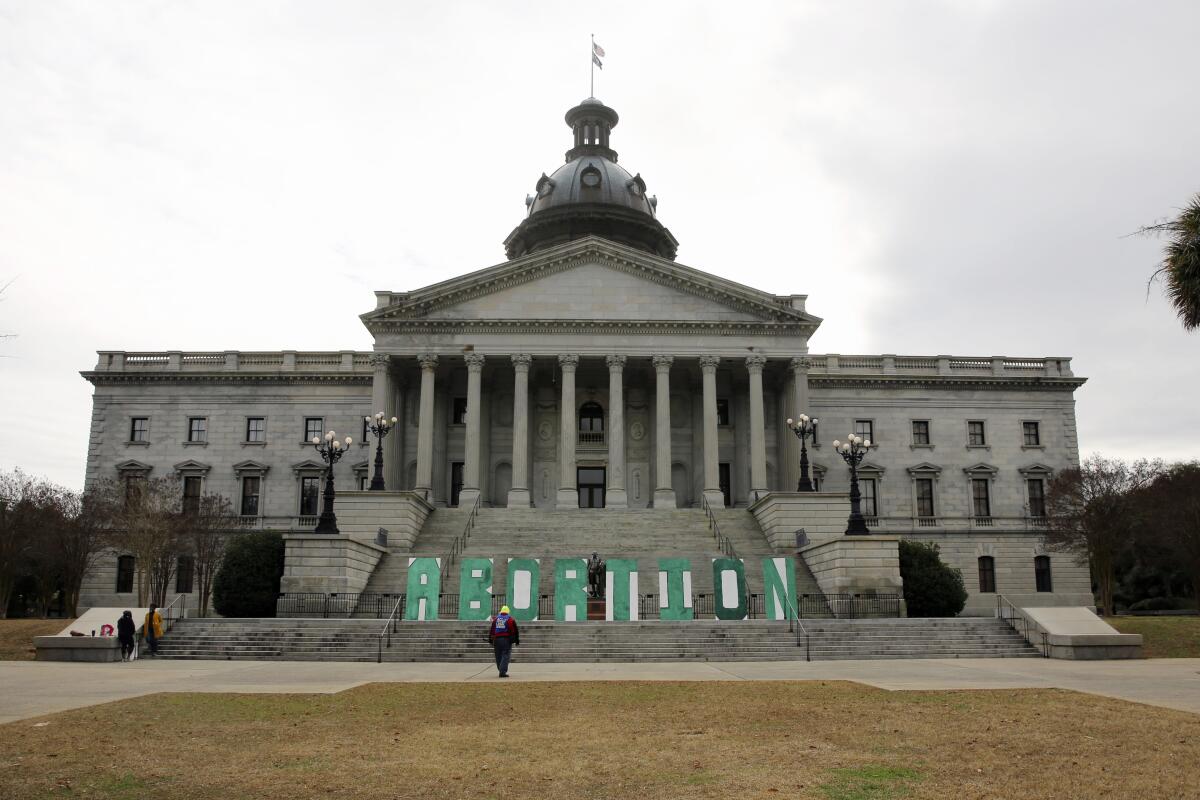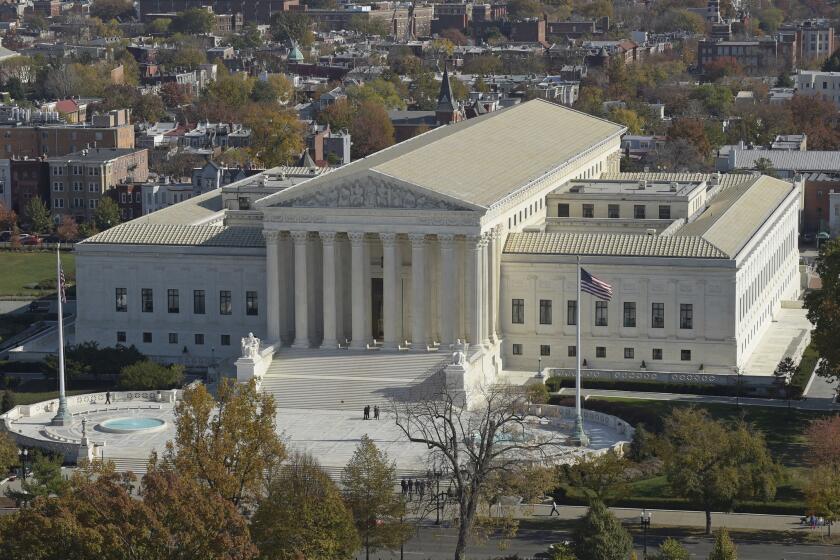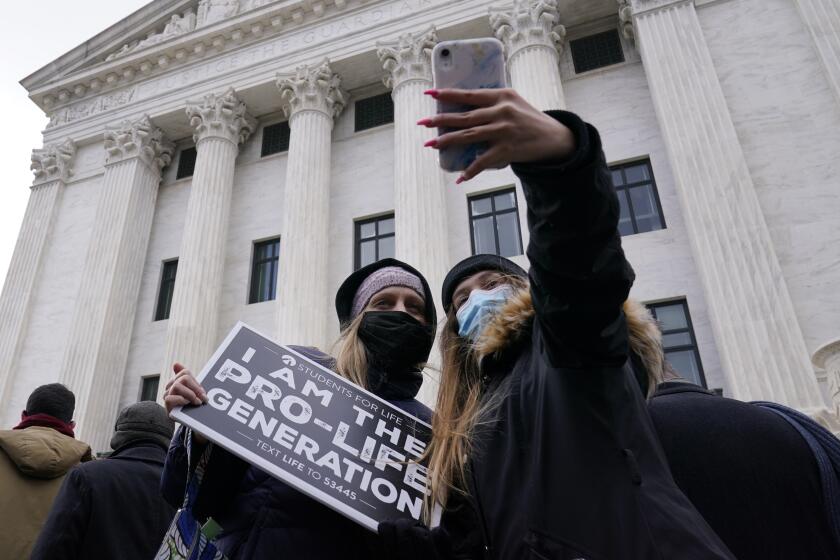The Supreme Court just showed why abortion bills have surged in statehouses this year

The question that has kept activists on both sides of the abortion debate guessing for months has finally been answered: The Supreme Court said Monday it will consider a case that could lead to a significant rollback of the Roe vs. Wade decision.
The announcement comes as conservative state lawmakers are making a sweeping push to advance new abortion restrictions. That’s no coincidence — the action in state capitols across the country is directly shaped by the signals sent from the high court.
Here’s what you need to know about the political landscape on abortion and the potential for major upheaval in the coming months.
A more conservative Supreme Court will weigh a woman’s right to choose abortion.
What just happened?
The nation’s top court said Monday it will hear arguments on a Mississippi measure that would ban nearly all abortions after 15 weeks. The justices will consider whether “all pre-viability prohibitions on elective abortions are unconstitutional.”
The question goes to a major tenet of abortion jurisprudence. In the landmark 1973 Roe vs. Wade decision, the court said states could restrict the procedure once the fetus could survive outside the womb, considered to be the third trimester. The viability standard was affirmed in 1992 with the Casey vs. Planned Parenthood decision.
On that basis, lower courts had blocked many of the sweeping abortion bans passed by Republican-led states in recent years. If the Supreme Court upholds the Mississippi law, which was passed in 2018, it could lead to states effectively banning the procedure earlier and earlier — narrowing the timeframe in which women could legally get an abortion.
The justices took an unusually long time to decide whether they would hear the case, leading both sides to wonder how eager they were to make a major ruling on a politically volatile issue.
How are activists reacting?
Abortion opponents, as expected, cheered the news. They have pointed to advances in technology that have reframed the debate around viability, moving the threshold when babies can survive outside the womb earlier.
“This is a landmark opportunity for the Supreme Court to recognize the right of states to protect unborn children from the horrors of painful late-term abortions. ...It is time for the Supreme Court to catch up to scientific reality and the resulting consensus of the American people as expressed in elections and policy,” said Marjorie Dannenfelser, president of Susan B. Anthony List, which opposes abortion.
Advocates for abortion rights, meanwhile, sounded the alarm that, even if the Mississippi case does not lead directly to the overturn of Roe, it could have major reverberations on access to the procedure across the country.
“Whether the Court rules in favor of [Mississippi] or not, they’re normalizing narrowing the aperture, placing more people who need abortion further from service,” said Ilyse Hogue, president of NARAL, on Twitter. “They have always understood, sometimes better than people who support Roe, that a right without access is not a right at all.”
Over 500 bills to limit abortion have been introduced in state legislatures this year as antiabortion lawmakers see opportunity in the Supreme Court.
Is all the action on abortion limited to the Supreme Court?
Far from it. Dannenfelser, of the anti-abortion SBA List, said that state lawmakers have introduced “536 pro-life bills aimed at humanizing our laws and challenging the radical status quo imposed by Roe.”
That’s an uncommonly high number of proposals; the Guttmacher Institute, a nonprofit think tank that supports reproductive rights, said this year could be “the most damaging antiabortion state legislative session in a decade — and perhaps ever.”
The proposed measures include near-total bans, some of which do not have exceptions for cases of rape or incest, as well as laws chipping away at access, such as prohibiting medication to induce abortion from being prescribed via telemedicine and dispensed through the mail.
Why is there a surge in abortion proposals now?
Much like in 2019, anti-abortion lawmakers are energized by the increasingly conservative lean of the Supreme Court. The addition of Justices Neil M. Gorsuch, Brett M. Kavanaugh, and most recently, Amy Coney Barrett, has given them confidence that a reliable majority of justices are willing to revisit, and possibly overturn, the precedent set by Roe.
“For a long time, we haven’t made a lot of progress. Everybody is seeing the possibilities now,” said Arizona state Sen. Nancy Barto, a Republican. “It has emboldened states.”
Barto wrote a bill to impose a number of restrictions in Arizona, including barring women from getting abortions because their fetus has genetic abnormalities, such as Down syndrome, and making it a crime for physicians to perform the procedure in those cases. Arizona Gov. Doug Ducey, a Republican, signed it into law last month.
One key trend is the increasing number of changes to state constitutions or existing code to prepare for a world in which Roe is overturned. In that scenario, the ability to restrict abortion will be controlled by the states — and lawmakers on both sides want there to be no ambiguity if that happens.
In New Mexico, for example, Gov. Michelle Lujan Grisham signed a bill repealing a state abortion ban that was on the books before Roe, but was rendered moot by the 1973 decision. On the other side of the debate, states such as Kansas have moved to amend their constitution to make clear the state does not protect the right to the procedure.
What other ripple effects might come from the court’s action?
The news will likely renew the push by some on the left to make structural changes to the Supreme Court, such as adding new justices or imposing term limits. President Biden has backed a bipartisan commission to study court reform. Progressives argue that won’t be enough.
“Republican-appointed justices appear to be moving even quicker than analysts predicted to make good on their supermajority status. The only question is, will Democrats recognize the storm clouds that are gathering, or will they continue to dither and allow themselves to get soaked before ever reaching for an umbrella?” said Brian Fallon, executive director of Demand Justice, a group that backs such changes.
There will also be significant implications for upcoming political campaigns. The justices will likely hand down their decision on the Mississippi case in late spring or early summer of next year — just months before the 2022 midterm elections.
That could thrust the contentious debate over abortion rights into an already-fraught campaign season. In the past, the anti-abortion side has been more effective in using the issue to rally their voters. But the threat of a national right to abortion being substantially undermined may help galvanize liberals.
More to Read
Get the L.A. Times Politics newsletter
Deeply reported insights into legislation, politics and policy from Sacramento, Washington and beyond. In your inbox three times per week.
You may occasionally receive promotional content from the Los Angeles Times.













